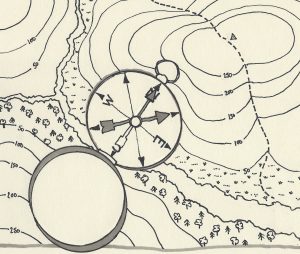
Warning – it’s a rough guide, not a road map
This guide was written during the Covid-19 lockdown, against a background of celebration of people working in the NHS and social care. I have worked in both, as a nurse and as a manager and felt uncomfortable joining in. I thought it was envy. I was a bystander. But that was not it. It was more to do with shame. I know that back in the 1980s when I was nursing, I was far from perfect. I was capable of kindness and indifference. I was a good colleague and could privilege my belonging to the team over questioning some of the ideas we had about what was right. I could be some distance from the idealised image I (and others) had of myself.
I now understand that my behaviour is mediated by others and the environment. This means my reluctance to speak up, to go against the grain, is not adequately explained by reference to my psychology. It is a part of it, and it needs to be if I am not to let myself off the hook of accountability. However, if I want to understand why I am capable of kindness and unkindness, I need to step beyond the personal. I need to explore the complex connectedness between myself, others, the work, and wider organisational/social context of this work.
To refuse this step is to risk lapsing into simplistic explanations and exhortations to be nicer. We know we need to be nicer and we know that in some situations, will find ourselves falling short. If one assumes behaviours, like bullying and incivility, are emergent from the complex interactions between people and structures we cannot provide a definitive road map. That is why this is a ‘rough guide’, a set of working notes, based on my own experience and offered as knowledge to be tested, validated, and revised, by people who want to keep it real. Who know that we are capable of good and that we can be a part of the problem. So, when I talk about bullies and people who are uncivil it is not my intention to separate myself from these roles. My interest is to understand the conditions by which we can take up these roles and behaviours and what helps to make it possible to step back into our kindness.
Read the Leadership Guide Introduction for an overview of how senior leaders can intervene on bullying and incivility through committing to and engaging in a five stage process:
- Senior team planning
- Talking to people
- Sense making
- Small actions
- Integration.
This five stage process includes links to the Resources section of this website which presents slides and notes about the underlying theory and evidence base behind the leadership guide.